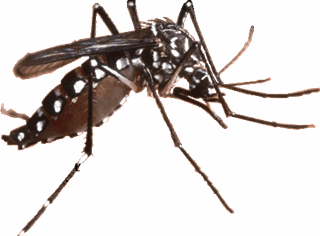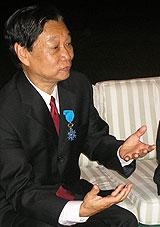While the world’s first dengue vaccine, Dengvaxia, was approved on Wednesday in Mexico by its health authorities, Malaysia is still hesitant to introduce the vaccine in the country.
The Health Ministry is still studying the issue, as the vaccine was not as effective against DEN2, a dengue sub-type more prevalent in Malaysian dengue cases, ministry deputy-director Dr Noor Hisham Abdullah told Bernama .
Mexico's move makes Dengvaxia the first vaccine to be licensed in the world for dengue prevention.
This is following the results of the final phase of the vaccine's Latin American trial in 2014, conducted on 20,875 children aged 9-16 years old across five countries in Latin America - Brazil, Columbia, Honduras, Mexico and Puerto Rico.
Dengvaxia
Dengvaxia was developed by the French drugmaker Sanofi’s Pasteur division. It had been researching the tropical disease for over 20 years, spending some €1.5 billion (about RM7 billion) on it as well as on manufacturing investments.
On July 11, 2014, Sanofi announced that the vaccine had passed Phase III clinical trials in South-East Asia, one of the last stages of tests before a drug can be put on the market.
 The clinical trials carried out on 10,275 healthy children aged 2-14 years old in Malaysia, Indonesia, the Philippines, Thailand and Vietnam showed the vaccine reduced dengue by 56.5 percent in the vaccinated group compared with the control placebo group, as observed during 25 months of active surveillance.
The clinical trials carried out on 10,275 healthy children aged 2-14 years old in Malaysia, Indonesia, the Philippines, Thailand and Vietnam showed the vaccine reduced dengue by 56.5 percent in the vaccinated group compared with the control placebo group, as observed during 25 months of active surveillance.
The data also showed good serotype specific protection, with better protection shown against DEN3 and 4 (75 percent). However, as with the Latin American trials, the vaccine showed less protection against DEN1 (50 percent) and least to DEN2 (35 percent).
Despite that, it is found to be 88 percent effective against dengue haemmorhagic fever.
Hesitancy
Earlier this year, the Health Ministry had announced that the vaccine would be made available in the country by mid-2015.
"In Malaysia, the vaccine will be available for free for the public," Deputy Health Minister Dr Hilmi Yahaya had said.
However, the ministry reversed the decision a few months later, with minister Dr S Subramaniam saying that the research data given was not enough for the use of the vaccine on a large scale.
 Eminent virologist Prof Emeritus Dr Lam Sai Kit (
photo
) expressed disappointment over the Health Ministry’s decision but understood the concerns given.
Eminent virologist Prof Emeritus Dr Lam Sai Kit (
photo
) expressed disappointment over the Health Ministry’s decision but understood the concerns given.
“As the founding chairperson of the Asia Pacific Steering Committee for Dengue Vaccine to Vaccination Programme, we were monitoring this vaccine closely, making sure it was efficacious, protective and above all, safe.
“This vaccine has undergone rigorous clinical trials, involving over 31,000 persons in 10 countries. I can't think of any vaccines that have been so vigorously tested. The results of the Asian and Latin American trials have been published in top scientific journals and have been studied closely,” Lam told Bernama .
Lam, who had been working in the field of dengue virology for over 40 years, has been monitoring the development of Dengvaxia since the start.
“During the two years I spent with the World Health Organisation (WHO) in Geneva in the 1980s, I was part of the task force to monitor the development of the Mahidol live tetravalent dengue vaccine in Thailand. After 20 years, it was found to be not feasible, using the approach they adopted then.
“Sanofi Pasteur took up the challenge 20 years ago, using a different approach, spending much effort, time and money on it. To their credit, they have now come up with the world's first dengue vaccine, and now licensed in Mexico,” he said.
Concerns and costs
Bernama had earlier asked Noor Hisham if the reason for the reluctancy in adopting the vaccine was the cost. However, his response was that the ministry was still studying the data in detail.
Lam was rather dismayed at the ministry's hesitancy.
“Malaysia had the chance to become the first country in the world to have this dengue vaccine licensed but we did not. Sometimes, we can be too cautious and take too long to deliberate and argue over the pros and cons.
"I hope it is not the cost of the vaccine that is holding us back. If Mexico can put this as a priority, and licensed it, what more Malaysia? I hope we will at least be the first country in Asia to use this vaccine for the benefit of our population,” he said.
Lam had gathered from the meetings with the Health Ministry as well as healthcare workers that the latter's main concern was the difficulty it might encounter in communicating to the public that the overall efficacy of the vaccine was only about 60 percent.
“This means that 40 percent of those vaccinated might still contract the fever, but the vaccine will ensure that it doesn’t escalate to a severe stage that might be fatal. What they will get is perhaps a mild version of dengue fever,” he explained.
However, it may be an uphill task explaining this to a parent whose child is infected with dengue, even after being injected with the vaccine.
“We must not forget, though, that the vaccine can reduce severe dengue by 80 to 90 percent, reducing hospitalisation and deaths. This can be translated into tremendous cost savings for any country,” he said.
The WHO cited 390 million cases of dengue every year in more than 100 countries, mostly in the developing world. Of the figure, an estimated half a million people contract severe dengue.
In Asia alone, the annual economic cost of dengue illness is about US$2 billion (RM8.53 billion), and this does not include the cost of vector control.
A study by Universiti Malaya Medical Centre in collaboration with Brandeis University in 2012 showed that the economic burden of dengue in Malaysia was some RM360 million per year.
The figure would most likely have escalated in recent years, given the spike in cases and national healthcare costs.
Lam reminded that the public health impact of the dengue vaccination would be tremendous despite its efficacy being considered low.
“In any case, there is no perfect vaccine in the world. Vaccines against some infectious diseases have been used even when the efficacy is less than 50 percent.
"It is a myth to think that we must have a perfect vaccine before we can consider using it."
- Bernama

